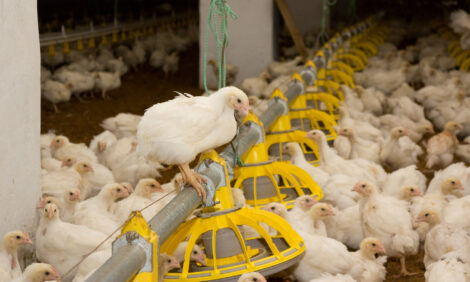



Removing Fat During Cooking Reduces Environmental Pollutants in Meat
SPAIN - Six months ago, the International Agency for Research on Cancer (at the World Health Organisation or WHO) associated consumption of red meat and processed meat with cancer risk.However, researchers at Rovira i Virgili University in Spain say its analysis it made no reference to some carcinogenic environmental pollutants that can already be present in raw or unprocessed meat. The researchers say in a new study that removing fat from meat can reduce concentrations of these substances.
According to the WHO study published six months ago in The Lancet Oncology, the substances responsible for this potential carcinogenicity would be generated by the meat processing itself, such as salting, fermentation, curing and smoking, or when the meat is heated to high temperatures releasing substances suspected of being carcinogenic such as nitrous compounds, polycyclic aromatic hydrocarbons (PAHs) and heterocyclic aromatic amines, among others.
The scientists at the Rovira i Virgili University (URV) analysed the role of other compounds that could already be in unprocessed meat, caused by environmental pollutants affecting the animals.
"We believe this is an issue that is worth taking into account in establishing the global causes of the carcinogenicity of consumption of red and processed meat," SINC was told by José Luis Domingo, lead author of the work with Martí Nadal, researchers in the laboratory of Toxicology and Environmental Health at the URV.
Higher concentration of toxins in fat
Although it is demonstrated that meat and meat products have a major nutritional value because of their contribution of protein, amino acids, vitamin B12 and iron, their daily consumption also leads to exposure to toxic substances that reach us through the diet consumed by the animals, based on feed, forage or grass.
"The water drunk and the air breathed by livestock may be minor pathways of contamination to humans through the consumption of meat," said Mr Domingo.
"The risks to consumer health are related to micropollutants - generated by human activity through breeding or veterinary treatments - or toxins induced by the processing itself," the authors emphasise in the study.
The potential environmental toxins include inorganic elements such as arsenic, cadmium, mercury, lead, PAHs, PFAs, dioxins, pesticides and other persistent organic pollutants (POPs), such as polychlorinated biphenyls (PCBs).
Most of these substances are fat-soluble, so any food with high fat contents accumulates higher levels of micropollutants than plant matter.
"PCBs and other POPs accumulate in the fatty parts of meat because they are fat soluble. Reduced consumption of meat fats will reduce the intake of PCBs. On the other hand, eating meat with a high fat content can result in a significant exposure to PCBs," the scientist informs SINC.
To check how cooking processes affect the presence of pollutants in meat, the researchers analysed in the laboratory the effects of frying, grilling, roasting or boiling on the concentration of various environmental, organic and inorganic pollutants present in beef steaks, pork loin, chicken breast and drumstick - which contains fewer organic pollutants than red meat - and lamb steak and chops.
The results show that different types of cooking influence the concentration of toxins differently depending on the meat product.
For example, POPs hardly undergo any changes between cooked and raw meat. Being organic substances, the study argues that only cooking processes that release or eliminate fat from meat would tend to reduce the total concentration of these pollutants in the cooked meat.
Reducing the level of pollution
The authors of the study recommended reducing the daily intake of fat from meat: "This would prevent not only cardiovascular risks, but also carcinogens, especially those associated with exposure to some environmental pollutants in the meat," they recommended.
But the concentrations of hazardous substances depend not only on the way food is prepared, "but even more so on the original content of toxins in the food itself before cooking," said the URV researchers. In fact, not all meat is equally contaminated from the source.
"It depends on precisely where and how the animals have been reared. Clean air and pastures can give meat with very low levels of environmental pollutants," they say.
Overall, the level of contamination in raw and unprocessed meat is below that of fish and seafood, "although it is much higher than that of fruits, vegetables and legumes," said Mr Domingo. "The contamination depends heavily on the content of fat, a key tissue in the accumulation of carcinogenic POPs," concluded the expert.








